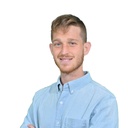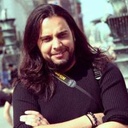Please tell us about yourself.
I'm Shahar, an experienced architect, and developer. I have a strong background in cybersecurity (having spent 6 years in the Israeli equivalent of the NSA, known as 8200) and cloud infrastructure. I was the founding engineer of anecdotes.ai, and today, I'm the CTO of Keep, a YCombinator-backed company.
The Code
What was your key driving force in starting Keep? What problems does it solve?
The problem of alert fatigue and the need for a better alerting experience for developers were issues that my co-founder and I faced in every company we worked for.
What sets Keep apart from other alternative tools?
Two main things:
- Firstly, it's open source and developer-first, meaning that you can write alerts as developers would want to.
- Secondly, it doesn't matter where you store your data - you can still use your favorite observability tools such as Datadog or Elastic. This means you can create alerts from any data source you want.
Do you have a business model for Keep?
We are building a platform that creates more value above open source. This includes features such as measuring alert engagement, a scoring system for alerts, AI-powered automatic alert creation, and better alert tuning, among other things.
What is the most challenging technical problem you faced when building Keep, so far?
We are still figuring out the best way to leverage AI and machine learning to help developers create better alerts.
What is the most challenging non-technical problem you faced when building Keep so far?
As this is our first time building an open-source project, the most challenging problem is to build a community around Keep and find our initial users.
What is your vision of Keep? How do you see it in 5 years?
Our vision is for Keep to become the go-to tool for alerting. When an engineer is asked to create alerts for their service and searches for 'open source alert tool' on Google, Keep's GitHub repository will be the first result.
What are other projects you’re building?
Our main focus right now is Keep, but we also contribute to other projects from time to time, such as https://github.com/shahargl/upload-github-workflow-logs-to-elastic.
What is the best way for a developer to contribute to Keep?
The easiest way is to either create an issue and start working on it or just contact me (I'm available and super responsive). Either way, the best thing to do is clone Keep and start playing with it.
Where can we go to learn more about what you’re building?
Currently, there is the repo itself https://github.com/keephq/keep and our website https://keephq.dev/.
The Human
Can you give an example of an early lesson in life that helped shape who you are today?
I started my engineering career as a young soldier. We were told not to use the internet to solve or debug problems, and instead rely on the documentation. It may sound crazy, but it made me extremely independent and helped me understand how to fix deep issues.
What is your favorite stack?
My go-to programming language is Python, which I'm very comfortable with. Throughout my career, I've worked with many different tech stacks, and my philosophy now is that the technology you choose depends 100% on the problem you're trying to solve. Except for Linux, of course – Linux is always the solution.
What are you currently learning?
We are in the middle of the YCombinator batch so I can say that I’m learning now to be a founder, which is a completely different skill than being a tech person.
If you had to share one piece of advice developers should follow, what would it be?
Be curious. Understand the deep internals of what you are solving. Keep in mind that writing code is just one aspect of being a good engineer.
If you had to suggest one person developers should follow, who would it Be?
I would strongly recommend following Paul Graham who founded YCombinator
What is your opinion on artificial intelligence? Will it replace Software Engineers?
I think that some of us will be replaced by AI. But eventually, like every time in history, new industries and job positions will be created so I’m not that worried.
Finally, is there anything else you’d like to share with your readers?
I’m open to any interesting insight or use case in the field of alerting. Feel free to reach out if you are passionate about it!


















